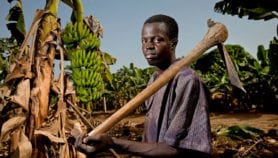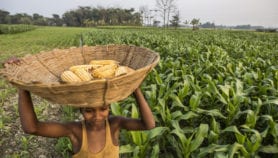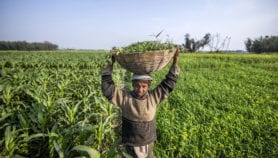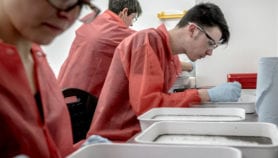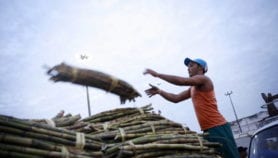By: Luisa Massarani
Send to a friend
The details you provide on this page will not be used to send unsolicited email, and will not be sold to a 3rd party. See privacy policy.
[RIO DE JANEIRO] Brazil’s new government has decided to maintain a ban on the sale of food produced from genetically modified (GM) crops in the country. But it has also promised to find a way of permitting the disposal of transgenic soya that has been grown illegally in the south of the country, which will be harvested later this month.
Both decisions were taken by President Luiz Inácio ‘Lula’ da Silva last week after a meeting with representatives from six federal ministries. “We are facing an important social and economic problem involving thousands of small farmers and millions of tons of soya, a proportion of which is transgenic,” André Singer, the president’s spokesman, said after the meeting.
“Because of this, and given the economic and social problems already created, the government is seeking a legally acceptable solution that allows the disposal of this harvest,” he added.
Government representatives are reluctant to sell the harvested soya on the national market, and are considering exporting it to countries in which there is little opposition to GM foods from consumers, such as the United States, Argentina and Canada.
Rubens Onofre Nodari, a researcher from the Federal University of Santa Catarina, suggests that exporting the crop would be less controversial than trying to sell it nationally. But he also warns that this could create a credibility problem in the future. “Will [foreign] clients believe that the next harvest is not transgenic?” he asks.
The Minister of Environment, Marina Silva, has accused the previous federal government of indirectly encouraging the growing of GM soya, saying it lacked a clear policy on GM crops, and failed to adequately monitor crops.
Ironically, however, the Brazilian region in which the most GM crops have been grown is Rio Grande do Sul, whose previous governor, Olívio Dutra, is a member of the Workers Party led by President Lula.
Dutra has promised to keep Rio Grande do Sul ‘GM free’. But in practice it is thought that about 80 per cent of this year’s harvest in the region is transgenic. Government representatives refuse to comment on the apparent inconsistency.
According to Silva, the farmers who grew the soya have acted illegally, since growing such crops is only permitted for research purposes, on a small scale, and with special authorisation. A key concern now facing the government is how to persuade the farmers to change their behaviour.
Adriano Campolina, policy director of the non-governmental organisation ActionAid, welcomed the government’s decision of maintain the ban on GM crops, and suggested reducing the market price of GM soya, to encourage farmers not to grow it.
A government working group has now been set up by Lula with representatives of all relevant ministries, many of whose ministers have different and conflicting views on the issue. The group has been asked to agree on a position for the government by the end of March.






